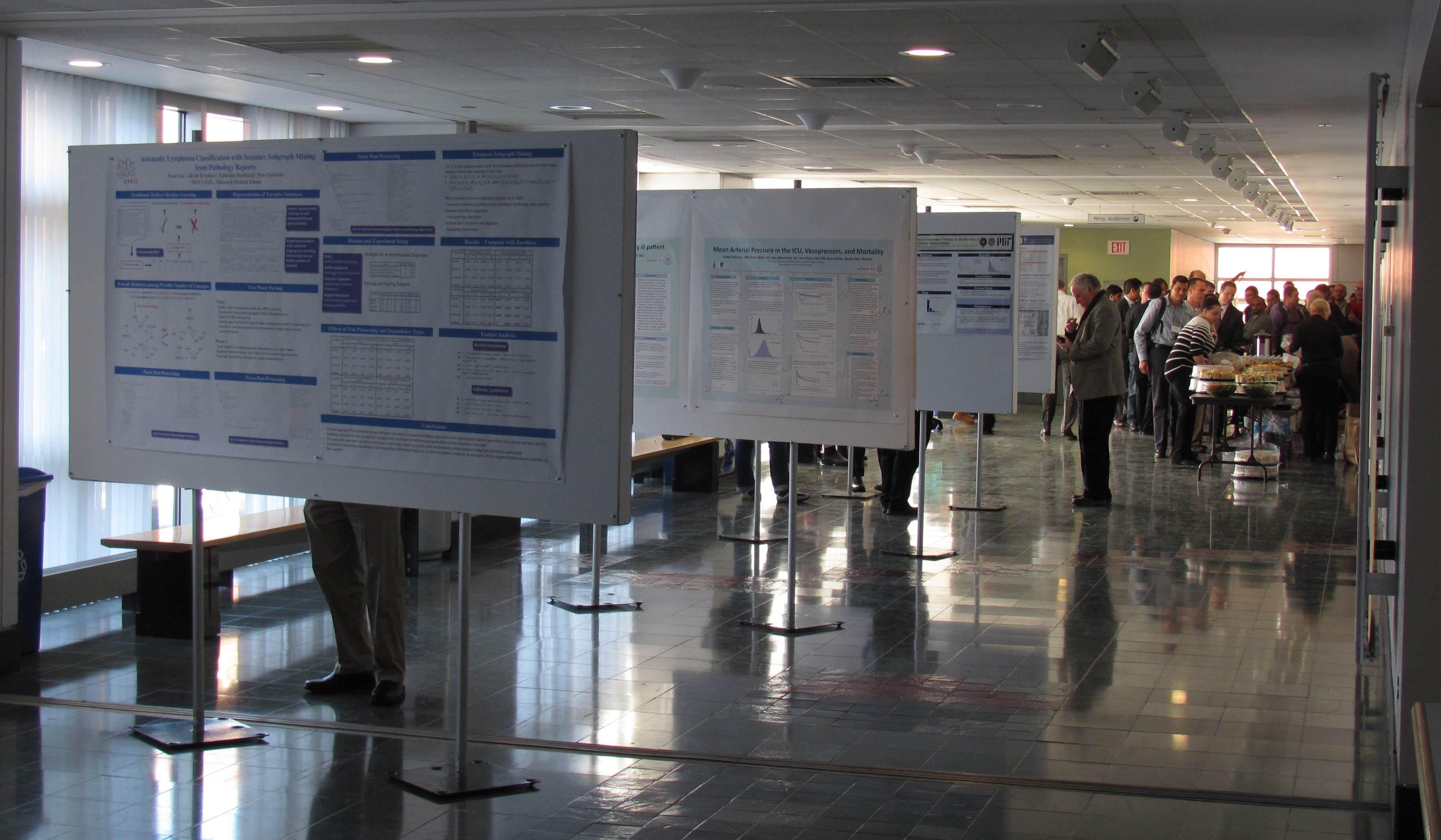Difference between revisions of "Template:Article of the week"
Shawndouglas (talk | contribs) (Updated article of the week text.) |
Shawndouglas (talk | contribs) (Updated article of the week text.) |
||
| Line 1: | Line 1: | ||
<div style="float: left; margin: 0.5em 0.9em 0.4em 0em;">[[File: | <div style="float: left; margin: 0.5em 0.9em 0.4em 0em;">[[File:Fig2 Celi JMIRMedInformatics2014 2-2.jpg|220px]]</div> | ||
'''"[[Journal: | '''"[[Journal:Making big data useful for health care: A summary of the inaugural MIT Critical Data Conference|Making big data useful for health care: A summary of the inaugural MIT Critical Data Conference]]"''' | ||
With growing concerns that big data will only augment the problem of unreliable research, the Laboratory of Computational Physiology at the Massachusetts Institute of Technology organized the Critical Data Conference in January 2014. Thought leaders from academia, government, and industry across disciplines — including clinical medicine, computer science, public health, [[informatics]], biomedical research, health technology, statistics, and epidemiology — gathered and discussed the pitfalls and challenges of big data in health care. The key message from the conference is that the value of large amounts of data hinges on the ability of researchers to share data, methodologies, and findings in an open setting. If empirical value is to be from the analysis of retrospective data, groups must continuously work together on similar problems to create more effective peer review. This will lead to improvement in methodology and quality, with each iteration of analysis resulting in more reliability. ('''[[Journal:Making big data useful for health care: A summary of the inaugural MIT Critical Data Conference|Full article...]]''')<br /> | |||
<br /> | <br /> | ||
''Recently featured'': [[Journal:Analyzing huge pathology images with open source software|Analyzing huge pathology images with open source software]], [[Journal:iLAP: A workflow-driven software for experimental protocol development, data acquisition and analysis|iLAP: A workflow-driven software for experimental protocol development, data acquisition and analysis | ''Recently featured'': [[Journal:Beyond information retrieval and electronic health record use: Competencies in clinical informatics for medical education|Beyond information retrieval and electronic health record use: Competencies in clinical informatics for medical education]], [[Journal:Analyzing huge pathology images with open source software|Analyzing huge pathology images with open source software]], [[Journal:iLAP: A workflow-driven software for experimental protocol development, data acquisition and analysis|iLAP: A workflow-driven software for experimental protocol development, data acquisition and analysis]] | ||
Revision as of 14:19, 20 October 2015
"Making big data useful for health care: A summary of the inaugural MIT Critical Data Conference"
With growing concerns that big data will only augment the problem of unreliable research, the Laboratory of Computational Physiology at the Massachusetts Institute of Technology organized the Critical Data Conference in January 2014. Thought leaders from academia, government, and industry across disciplines — including clinical medicine, computer science, public health, informatics, biomedical research, health technology, statistics, and epidemiology — gathered and discussed the pitfalls and challenges of big data in health care. The key message from the conference is that the value of large amounts of data hinges on the ability of researchers to share data, methodologies, and findings in an open setting. If empirical value is to be from the analysis of retrospective data, groups must continuously work together on similar problems to create more effective peer review. This will lead to improvement in methodology and quality, with each iteration of analysis resulting in more reliability. (Full article...)
Recently featured: Beyond information retrieval and electronic health record use: Competencies in clinical informatics for medical education, Analyzing huge pathology images with open source software, iLAP: A workflow-driven software for experimental protocol development, data acquisition and analysis










